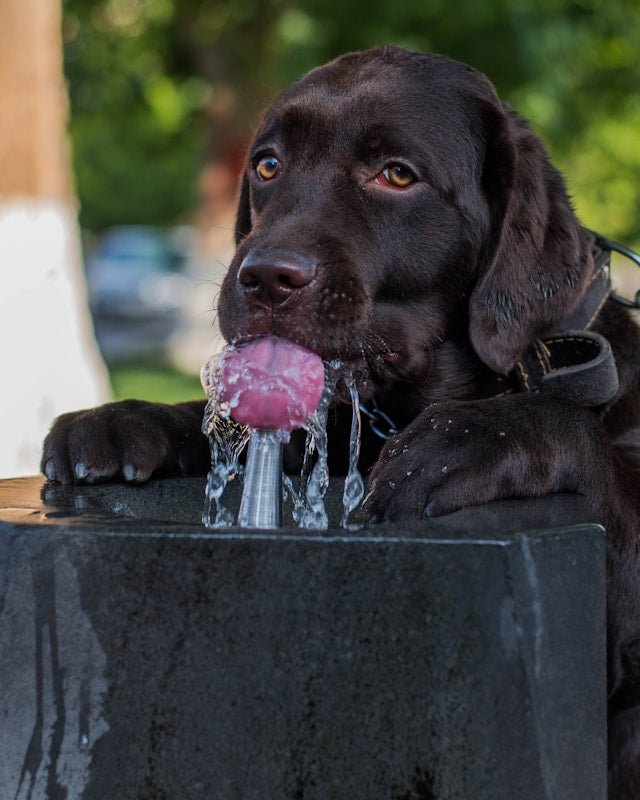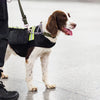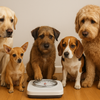Dog Rehydration Drinks or Just a Bowl of Water?💦

Dog Rehydration Drinks or Just a Bowl of Water?
Dogs lose relatively less water than humans in heat or with exercise as dogs only have sweat glands on their paws! So, when in good health water loss is restricted to urination, panting and salivation but some dogs may not drink enough water to adequately to replenish what little they lose.

Dehydration can be the result of one or more issues including gastrointestinal distress, diarrhoea, and repeated vomiting. In these cases the condition can be acute or chronic depending on the cause.
Signs to look out for include:
- Loss of skin elasticity – when you gently pinch the skin over the shoulder blades it should spring back in under 2 seconds
- Dry eyes with a visible third eyelid
- Dry or sticky gums
- Thick saliva
- Dry nose
Should you notice these dehydration symptoms in your dog or if they have persistent vomiting or diarrhoea seek veterinary advice promptly.
Research studies show that rehydration drinks are preferred to plain water by dogs, consuming twice as much. This is due to the flavouring, saltiness, or milk like nature in some cases. Some owners may believe that the ingredients in these drinks are important for rehydration: others may just see rehydration drinks as a means of getting their dogs to take more liquid.
The rehydration products are mainly powders which the owner mixes with water. There are a few ready mixed options although these tend to have shelf-life problems because they have flavourings (typically chicken) that go off.

The reality is that in a healthy dog these products do more for the owner than the dog as canines don’t need electrolytes, albeit of course they do need permanent access to water. There will be a few dogs of course who do not drink enough plain water and the taste of the re-hydration drink may be beneficial in increasing liquid intake in these dogs, but it could be said that so could water with a small amount of stock cube added for taste.
A note about goat’s milk. Goat’s milk is touted as being good for dogs and is used in rehydration drinks. Dogs tend to like milk, and so it is there to tempt the dog to drink. However, the health benefit of goat’s milk lies ONLY in its long- term use through its pro-biotic content. Dried goat’s milk as used in re-hydration drinks does not contain pro-biotics, only calories. Some canine hydration formulas raise ethical questions: one product contains nearly 30% sugar which is wholly unnecessary and not advised for dog consumption
💦 💦 💦 💦 💦💦
However, if your vet has reason to suspect any nutritional deficiencies due to ongoing infection or distress of your four-legged friend, they may suggest special hydration formulations. These contain simple amino acids, sugars and pre and probiotics in addition to the rehydration salts.
These specially formulated rehydration solutions are ideal for senior dogs and cats, as well as dogs and cats with kidney issues. They replenish the protein and carbohydrates lost due to vomiting, diarrhoea or inappetence. These specially prepared solutions aim to make up for the nutrient loss or malnutrition that often accompanies chronic dehydration.

So, there you have it.
Dogs can become dehydrated, though not from loss of water through perspiration and exercise. Sustained heat causing increased panting is one factor, but illness is usually the main reason for loss of water.
Dehydration drinks, either bought or home-made, will help you get more liquid into your dog if needed. Electrolytes really are not necessary in healthy dogs, but they have proved harmless.
Above all remember that observation is the starting point, watch out for the signs of dehydration.










